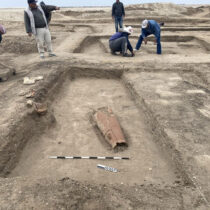The doctrine of the Church Fathers during the early centuries of the Empire infused a new, Christian concept into the Hellenistic and Roman tradition of philanthropy. Foundations functioning under the supervision of the Church and monasteries as well as various charities could efficiently meet the needs of those citizens who were sick, incurable or in great need. Judging from fragmentary literary sources of the late fourth century, it is concluded that at least in Constantinople there was a number of nursing units, staffed with specialized personnel. The cooperation of the Patriarchate of Constantinople with the imperial court was particularly realized in the important medical institutions of the sixth and seventh centuries, which could provide specialized treatment and health services. In spite of the reproach of the hagiographical texts as regards the effectiveness of medicine and the perpetual distrust of the aristocracy for establishments of mass hospitalization and cure, the foundation in the twelfth century of the Pantocrator Hospital testifies both the high standards of planning and function of medical institutions and the social upgrading of the medical profession.
The course of medical care in Byzantium
30 Aug 2012
by Archaeology Newsroom
- A
- A
- A

